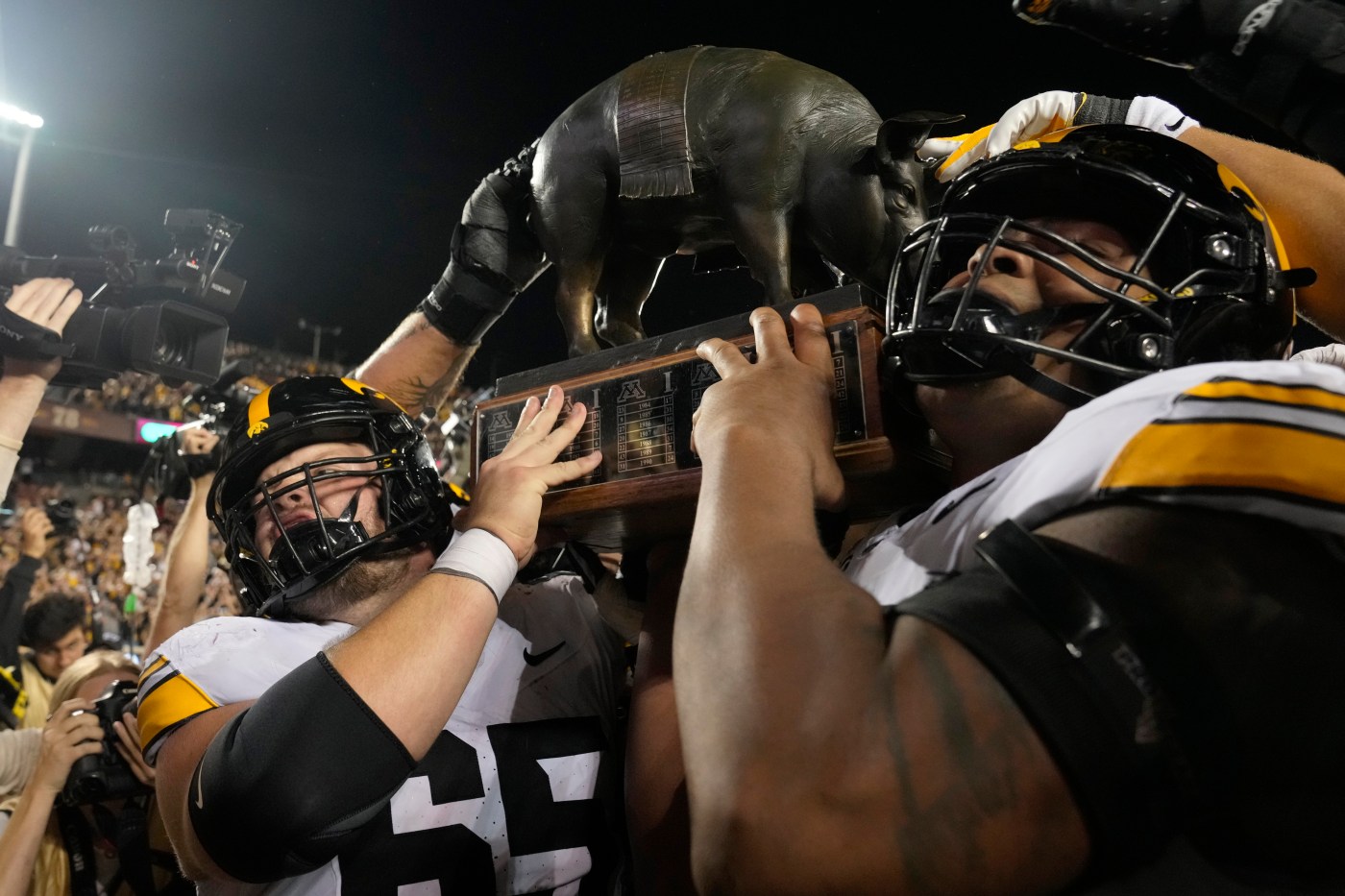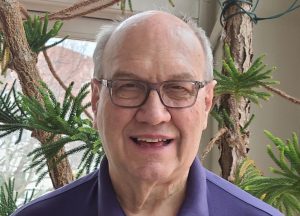
P.J. Fleck’s plea: “Don’t give up on this team” after Gophers’ loss to Iowa
The Gophers spent Saturday’s second half failing to stop the Iowa Hawkeyes from running the football and leaving Minnesota with Floyd of Rosedale.
As the bronzed pig trophy headed south after a 31-14 loss, head coach P.J. Fleck tried to keep Gopher fans from walking out, too. The postgame news conference was wrapping up when Fleck added a closing comment.
“I just want to thank our crowd,” Fleck said of the announced attendance of 52,048 at Huntington Bank. “I want to thank our fans and our student body, a sellout again, a maroon out. Place was rocking. I mean rocking. And I can’t tell you how much I appreciate (that as) the head coach and our players appreciate that. That’s really special environment at Huntington Bank that our fans create.
“And don’t give up on this team,” Fleck continued. “This team’s got a lot of football left, I promise you. And we’re gonna give you everything we have moving forward. That second half — we’re gonna learn from, I promise. We’ll get that corrected.”
The Gophers fell to 2-2 on the season and 0-1 to start Big Ten play. The next two games against ranked teams figure to be a lot tougher than what they faced on Saturday.
Minnesota will play its first road game of the season against the defending national champion Michigan Wolverines in Ann Arbor at 11 a.m. Saturday. Then the U will host Southern Cal on Oct. 5 in Minneapolis. The Gophers will be heavy underdogs against those traditional powerhouses, but first they have to find out what went so wrong after halftime Saturday.
Fleck’s processing was going to start immediately after the game wrapped up at 10 p.m. Saturday. First, he came to the postgame media session much sooner than he typically does. He then planned to watch the film straight away, reflect on the game Sunday morning and watch it again.
“Then it makes you feel really a lot better once you get back around the guys,” Fleck said. “I think (Sunday) that’ll be really important for us to get back around each other and then talk about what happened and why it happened. Then you gotta have that goldfish mentality. You gotta be able to move on, because the next one’s coming.”
After the Gophers’ season-opening loss to North Carolina, a rectangle fishbowl with orange goldfish sat in lobby at the Larson Football Performance Center. It was there to represent the famous line from “Ted Lasso” about how goldfish are the happiest animals in the world because they have 10-second memories.
“First, making sure that everybody is in the right headspace,” defensive lineman Jalen Logan-Redding said about bouncing back. “Of course, dealing with a loss is tough, but at the end of the day. I told them in the locker room: this is what makes teams great. You respond from a loss, you learn from it. And us as football players, you become better men from it.”
The Gophers have lost two 14-7 halftime leads — to North Carolina in the season opener Aug. 29 and to Iowa on Saturday. Minnesota closed both first halves strong, but watched both game slip away after coming out of the locker room.
“That’s every game too, you go back and you look for the stuff to fix,” quarterback Max Brosmer said. “You are going to find stuff that you can fix all across the board — whether it being executing plays or energy. It happened to be that we could do a better job with energy next time.”
Related Articles
Gophers overrun in 31-14 loss to Iowa in rivalry game
Gophers secondary down two key players for Iowa game
Gophers football: ‘Such a fulfilling win’ over Iowa last season
Gophers football: Quarterback Max Brosmer has link to Iowa
Gophers football: Coach Nick Monroe’s ‘life-changing’ car accident leads to more gratitude

